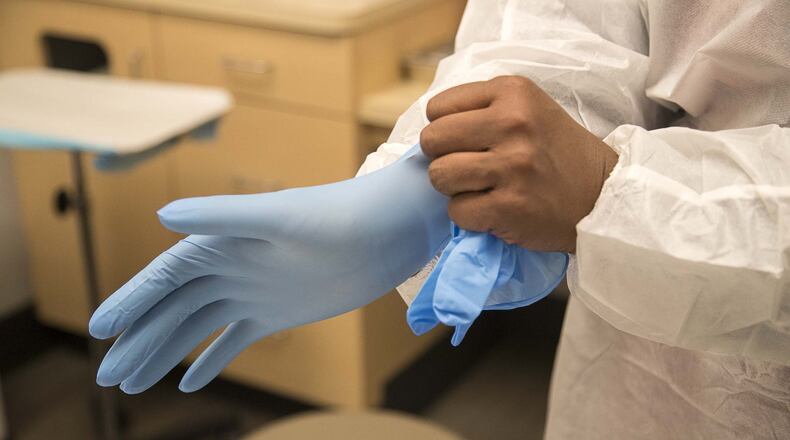Weeks into the novel Coronavirus pandemic that has brought our country and much of the world to a crippling standstill, the dialogue in our homes has never been more unnerving. Media coverage on illness and dying have been painfully thrust into the public eye. Our mortality, perhaps once considered a failure of life itself, has come to the forefront. We are uncomfortably reminded that death is an inseparable part of life. It is this very mortality that demands that medicine support a balanced approach between maximizing quantity of life and safeguarding quality. Patient-centered medical care is the cornerstone of this balance.
Though society champions the physician’s ability to “save lives,” our myopic narrative on “saving lives” begs revision. Often, medicine can only slow down a disease process, or perhaps make living with it easier. Ultimately, the trajectory of life is irreversible. Death is an expected outcome. Narrowly defining “saving lives” as an attempt to maximize a quantity of time overshadows the other equally relevant objective of safeguarding quality of time.
Success in medicine is best measured by identifying and achieving patient-centered outcomes. This collaborative effort between patient and physician prevents our most formidable clinical tools from becoming the most unfortunate of weapons. Whether it’s surgery, CPR, ventilators, feeding tubes, chemotherapy or any other intervention that exposes the patient to a significant burden, appropriate care should be measured by the context of the intervention, not the intervention itself. The ideals of practicing medicine are part of the broader agenda of harnessing science for the betterment of humanity. Though the science itself holds inherent value, the context of its use lends to its measure of medical worth.
Medical interventions carry no inherent beneficence that justifies a blanketed approach to their use, nor is there anything magical about them. They are simply “good science” when applied appropriately and quite dangerous when not. Sometimes the greatest wisdom imparted by doctors is not found in what we provide, but rather in what we abstain from, knowing when an intervention is more likely to harm than help. This abstention is not an act of withholding or withdrawing care, but rather of saving our patients from the greater harm of providing it. When the net outcome to the patient is suffering, use of the word “care” would be inappropriate. Though patient-centered care planning is being highlighted amidst the threat of a healthcare emergency, it should be encouraged routinely as a tenet of high-value care and the hallmark of quality care. In its absence, our medical service lacks the lens with which we calibrate the greatest good for each individual.
Identifying the most appropriate care is best accomplished through a transparent discussion with the patient about the disease process, eliciting their personal values or goals and aligning them with a selected intervention. Rather than simply focusing on what medicine can do for patients, this process explores what patients want for themselves, and how medicine can help them achieve their objectives. This dynamic process should address the needs and preferences of the patient at any stage of life, including end of life. For some, that inevitability may come at the hands of heart failure, cancer, dementia or end-stage renal disease. For an even smaller population, the culprit is COVID-19. Regardless of the diagnosis, a patient-centered approach to medical planning should be taken.
If you ask most people how they would like to spend their last moments of life, studies show that a significant majority would prioritize medical care that focuses on comfort, with relief of pain and suffering. Doctors should inquire about a patient’s personal preferences for end-of-life care so that medical plans maintain a desired therapeutic outcome. We should explore the trade-offs that patients would make to either live longer or live better, if the two are ever in conflict.
According to a recently published report in the Journal of the American Medical Association, 87 percent of interviewees with serious illnesses said that if promoting longevity ever came into conflict with maintaining a comfortable life, quality would be prioritized over quantity. To that extent, they would trade a full year of time alive to avoid the fate of dying on life support in the ICU. Sadly, in the age of COVID-19 with visitor restrictions on hospitals across the country, death in the ICU may also mean dying alone.
Proactively initiating these uncomfortable conversations is of tremendous benefit to every patient. It is a conversation about how one wants to live, not just how one wants to die. But since end of life is simply a part of life itself, how people want to live can be a reflection of how they want to die; comfortably, in peace, with dignity, surrounded by loved ones.
We must challenge a false equation of medical futility with failure. Death is not a failure of medicine, as our goal was never to broker immortality. A lack of patient-centered, life-stage appropriate care, however, is. At this moment, physicians are aware that some may succumb to COVID-19, no matter how sad or frustrating that is to accept. By now, the entire world knows this, as well. We are also aware that in the midst of this pandemic, countless other Americans will continue to die from cancer or chronic diseases, completely unrelated to the novel coronavirus. But just because we cannot promise recovery does not mean that medicine has met its limitations. There will always be a medical plan that benefits our patients. In that respect, physicians will always strive to provide the greatest good through preeminent and compassionate care, especially at the end of life when patients often need us the most. This is our oath, and we all intend to stand by it.
Dr. Joshua Jackson practices internal medicine, supportive medicine and palliative care at Piedmont Healthcare.
About the Author
Keep Reading
The Latest
Featured



